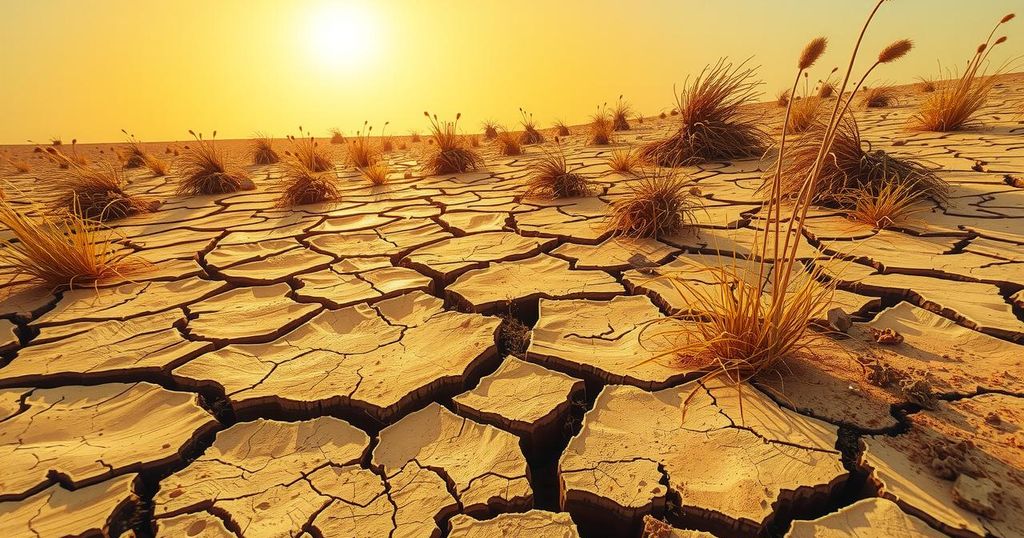Women and girls in South Sudan face increased health risks and inequality due to climate change, particularly during extreme heatwaves. February’s heatwave, influenced by human-caused climate change, has led to school closures and heightened dangers for women, including increased rates of miscarriage. Researchers emphasize the urgent need for transitioning from fossil fuels to mitigate ongoing climate impacts.
Research indicates that women and girls in South Sudan are disproportionately affected by climate change and extreme heatwaves, exacerbating health risks and inequality. The World Weather Attribution (WWA) group has published findings revealing that February’s heatwave was rendered ten times more probable due to human-caused climate change, with temperatures increasing by two degrees Celsius.
The heatwave caused severe health issues, such as heat strokes, resulting in the temporary closure of schools in Juba, marking the second such incident in a year. This unusual early onset of extreme temperatures has raised concerns, as the country typically does not experience severe heat in February. The construction of schools with iron roofs restricts ventilation and lacks air conditioning, resulting in unbearable conditions for students.
Women and girls face heightened challenges during these school closures, which hinder education and contribute to rising inequalities. The burden of household chores and employment primarily falls on women, consequently exposing them to extreme temperatures and increasing the risk of heat-related illnesses. Efforts to enhance classroom conditions, such as improving ventilation and changing school colors, along with adapting academic schedules, could alleviate some impact of the heat.
Persistent gender roles and limited options aggravate women’s vulnerability in South Sudan’s climate change context, as emphasized by Friederike Otto, WWA’s lead researcher and climate science lecturer. The detrimental effects of fossil fuel consumption drastically intensify extreme weather, placing the most disadvantaged populations at risk. Women globally face increased mortality rates during severe weather events along with food scarcity and violence following such occurrences.
The comprehensive study by a team of 17 researchers revealed that South Sudan’s extreme heat would have been highly improbable without climate change. The intensified heatwaves correlate with a notable rise in miscarriage and stillbirth rates, further endangering maternal health in a country already grappling with high maternal mortality rates.
Emmanuel Raju of the University of Copenhagen noted that global social disparities disproportionately expose women and girls to climate change impacts. Furthermore, the Global South often witnesses increased debt and heavier workloads among women, alongside a compounding struggle with basic needs, such as access to water.
Heatwaves reaching temperatures as high as 40 degrees Celsius are becoming increasingly commonplace in South Sudan. Predictions indicate a potential for such extreme heat occurrences every year if fossil fuel usage does not decline. Sarah Kew from the WWA has highlighted the urgency of a transition away from fossil fuels to mitigate climate crises effectively and reduce the escalating dangers of extreme heat.
In conclusion, the effects of climate change in South Sudan are severely impacting women and girls, intensifying health risks and socioeconomic inequalities. The escalation of extreme heat events compromises educational opportunities, endangers maternal health, and exacerbates existing social disparities. Strategic interventions and a steadfast commitment to reducing reliance on fossil fuels are essential to mitigate these challenges and support vulnerable populations.
Original Source: www.climatechangenews.com




